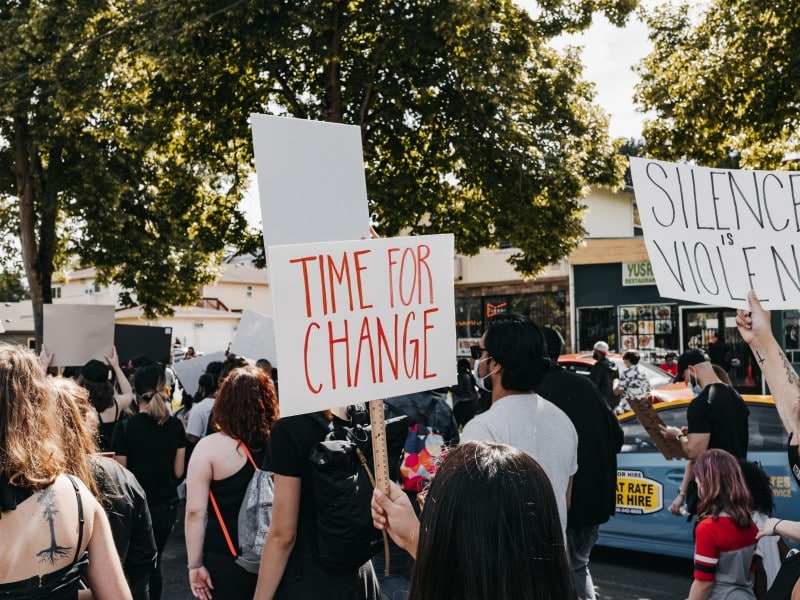Instead of Moving Forward with Trans Rights, We’re Moving Backward
This past year has been more of a setback than an advancement when it comes to trans rights. We explore why.

The truth is transphobia is an issue everywhere, not just in the Latino community. Anti-trans bills have recently popped up all over the country in states like Arizona, Alabama, Indiana, Kentucky, Oklahoma, New Hampshire, and South Dakota. Advocates labeled 2021 as “worst year in recent history for LGBTQ state legislative attacks.”
Barely three months into 2022 at least nine measures that target trans and nonbinary youths, such as their ability to participate in sports, receive gender-affirming care, or use the bathroom have been introduced. These bills are a clear demonstration that transphobia is alive and well, and that the people in power in this country are actively trying to harm the trans community.
NBC news reports, “Last year, bills prohibiting health care for trans youth were introduced in more than 20 states, with two states — Arkansas and Tennessee — signing them into law, according to a tally from the American Civil Liberties Union.”
And the hate extends outside of the U.S. The Latino community still struggles with inclusion and acceptance. In fact, from the 2020 list of 350 trans people murdered, 287 took place in Central and South America. Homophobia and transphobia are something that we still have to actively fight to dismantle as it is deeply rooted in the culture, especially for older generations.
We need to have these discussions if we expect the situation to change. So why does the Latinx community hold so much prejudice and anti-trans beliefs? And how can they be unlearned? As we fight for equality we need to remember that that includes all marginalized groups that are systematically oppressed.
Patriarchal tendencies encourage transphobia and violence (machismo)
A Patriarchal system only encourages gender normative norms in order to assign roles to men and women. These beliefs are still largely reinforced in the Latinx community. It’ll come as no surprise to know that a large percentage of these crimes are committed by cisgender men, which is an indicator of how harmful the machista belief that men “are violent by nature and that’s normal” is.
Machismo encourages violence, and it does so, even more, when it comes to those that don’t fit into the archaic belief of what a man and a woman are supposed to be. According to HRC, trans women of color comprise approximately 4 in 5 of all transphobic homicides.
Misinformation and lack of education

Another big issue is that the system still believes this is a taboo subject. Very little advancement has been made, when it comes to educating the general public on what it means to be transgender. Gender-inclusive language should be part of our education system, period. We need to tackle intersectionality
View of the world and society through the eyes of religion
We know that Latinx culture is heavily influenced by religion.
The belief that men and women were created as such and that there’s no way around that is a big part of why transphobia runs rampant in the community. Religion can be blinding, there’s no way around that, it needs to be understood that the world exists outside of a specific religion and that tolerance and having beliefs are not mutually exclusive.
Many transgender people are religious themselves and they have found comfort in religion, which confirms that it is not religion itself that’s the problem, but how people twist and manipulate it to their liking to conform to their hate-fueled views of the world.
What do we need to do to fight transphobia?
Opening up these sometimes very difficult and often confusing conversations is just the first step. Sitting down with our relatives, our abuelas, tíos, tías, anyone we can and sharing our views with determination and gentleness is a must. We need to become allies, just being accepting isn’t enough.
In the same way that we fight for gender equality, we need to fight to stop violence against all. The system needs to be changed from its root, transgender people need equal access to healthcare, school, and jobs, laws need to be created to protect them. not target them.
Just as we’ve seen progress with other social issues, this too can be improved. It will take everyone to step outside of their zone of ignorance and learn that while change is often jarring, it’s possible, and everyone will be better off for it.



